Letters from the Industry
Editor’s Note — At one time, restaurants rolled the dice by opening a second location across town. Now, it’s not uncommon to see a concept transported across the state, county––even the country. In today’s Letters from the Industry, the team at New York City’s The Cannibal Beer & Butcher explain the nuances behind doing just that: packing up their four-year-old concept and adding a West Coast location in Los Angeles. The restaurant is set to begin service in Culver City in April, and the team took a few minutes to sit, enjoy a meal together and reflect on their ambitious undertaking in the weeks leading up to their opening.
On business, and being a team
[Co-owner] Christian Pappanicholas: Los Angeles has been on our radar for quite some time; my wife has family in L.A. and we travel there a great deal. After we developed and built The Cannibal, we felt like the brand had legs beyond just one location, and when the Runyon Group approached us with PLATFORM and spoke of the brands they were talking to, we were instantly excited.
L.A. represents one of a few Tier 1 cities in this great nation, and the culinary scene rivals any of the others. When you couple that with the all of the new and exciting things happening in that particular space, it was a very easy decision.
Of course, there’s a great deal of challenges from the business side. First, it’s 2789.9 miles away from home base––you can’t just pop across town for a check in. Organizing the team posed a big hurdle. Luckily, Chef Francis was very excited to check out the surf––and the vegetables. Cory Lane, our Operating Partner, was also key in the decision; he was happy to collect the air miles that require him to travel back and forth as much as we’ll need him to. Karina Turtzo, a native New Yorker and our Business Development Manager, was someone Cory & Francis had worked with in the past. She already had plans to move to L.A. and signed up early on. Lastly, our Beer Director Julian Kurland, who has been with the company for four years in New York, was looking to move back to L.A. where he used to work as an agent. When you have a strong team already in place––not to mention a few new members that we’ve known and were excited to come on board––it gives you the confidence to take on a project so far away.
Karina Turtzo: We’re also really excited to build our service team in L.A. We’ve already met with some wonderfully talented and passionate people who love food and hospitality as much as we do. Recruiting a team that thrives on pushing each other to be better and to learn every day is the backbone of our service philosophy. Hold yourself and each other to high standards, be humble, have fun, and love what you do––that’s how we operate.
Pappanicholas: And the relationship with The Runyon Group was also integral; they provided us with a great deal of support in the process. Having spent time in the commercial real estate industry in New York, I was worried about the landlord relationship–– it turned out to be the best I have ever had. Again, this is part of that confidence when you’re making the deal, and when you are in the development and construction phase.
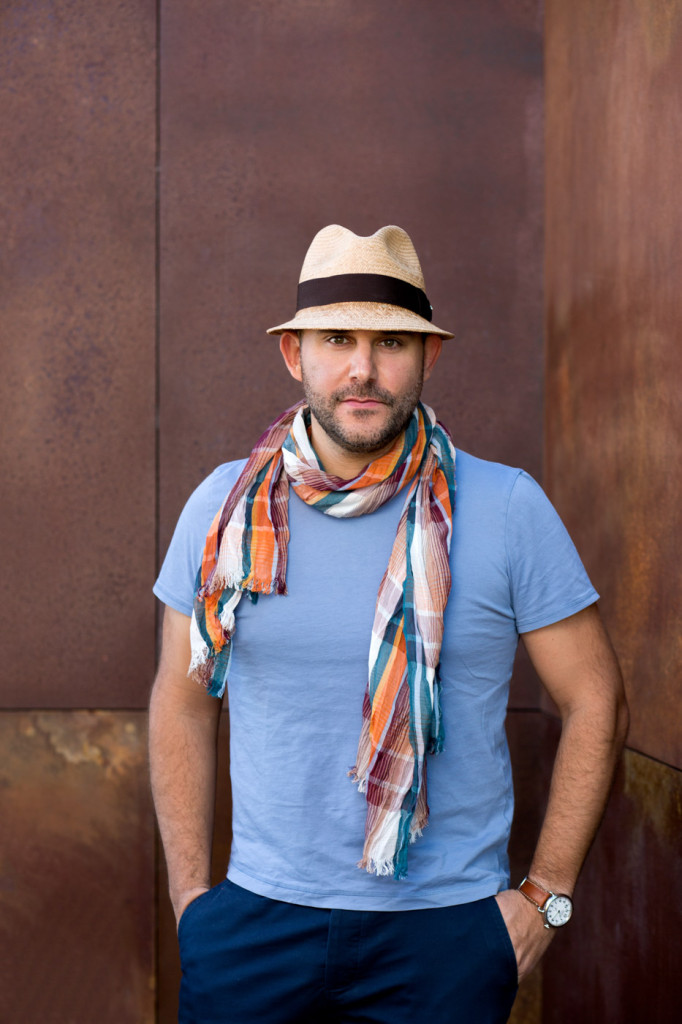
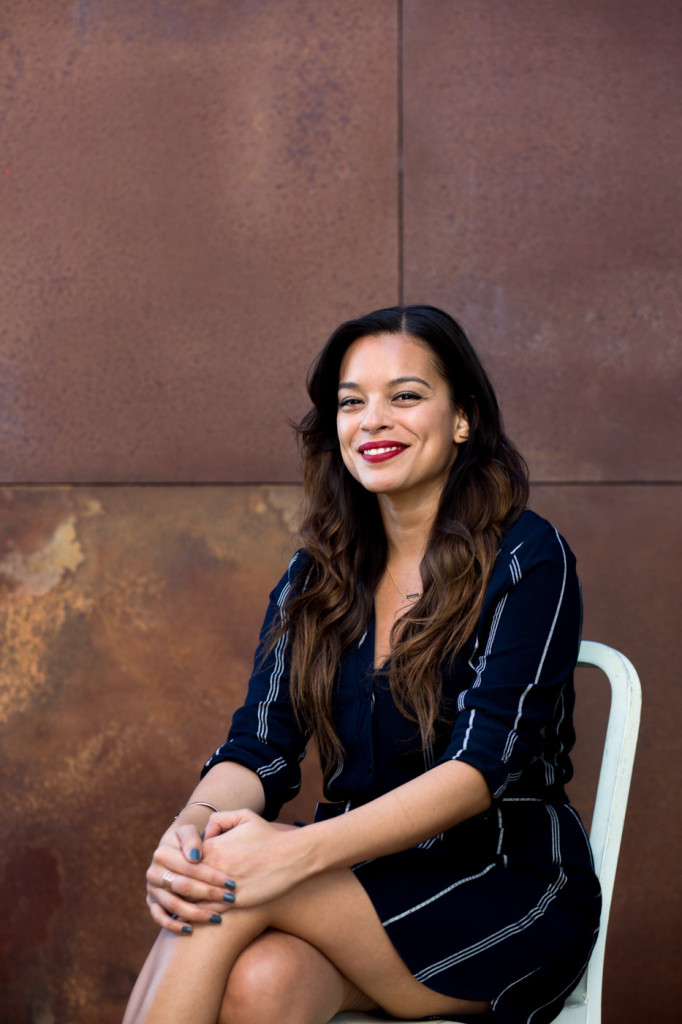
On space, design and transporting an atmosphere
Cory Lane: Once you have that confidence with the team, it starts to be about the fun part––the development and execution of ideas. Everyone is striving to create something really amazing based on what we have done in New York. The Cannibal there has a wonderful way about it; it’s small and tight, it has this energy––it constantly smells like cured meats and pickles, and it’s sometimes is a bit too smoky. There’s a level of compression that creates a tight community because you have to be friendly––you’re often sitting next to a stranger. We have a much larger space with 16-foot ceilings, but we were very careful to create that same energy in L.A. Our designer, Studio MAI, came up with some amazing solutions to keep that compression.
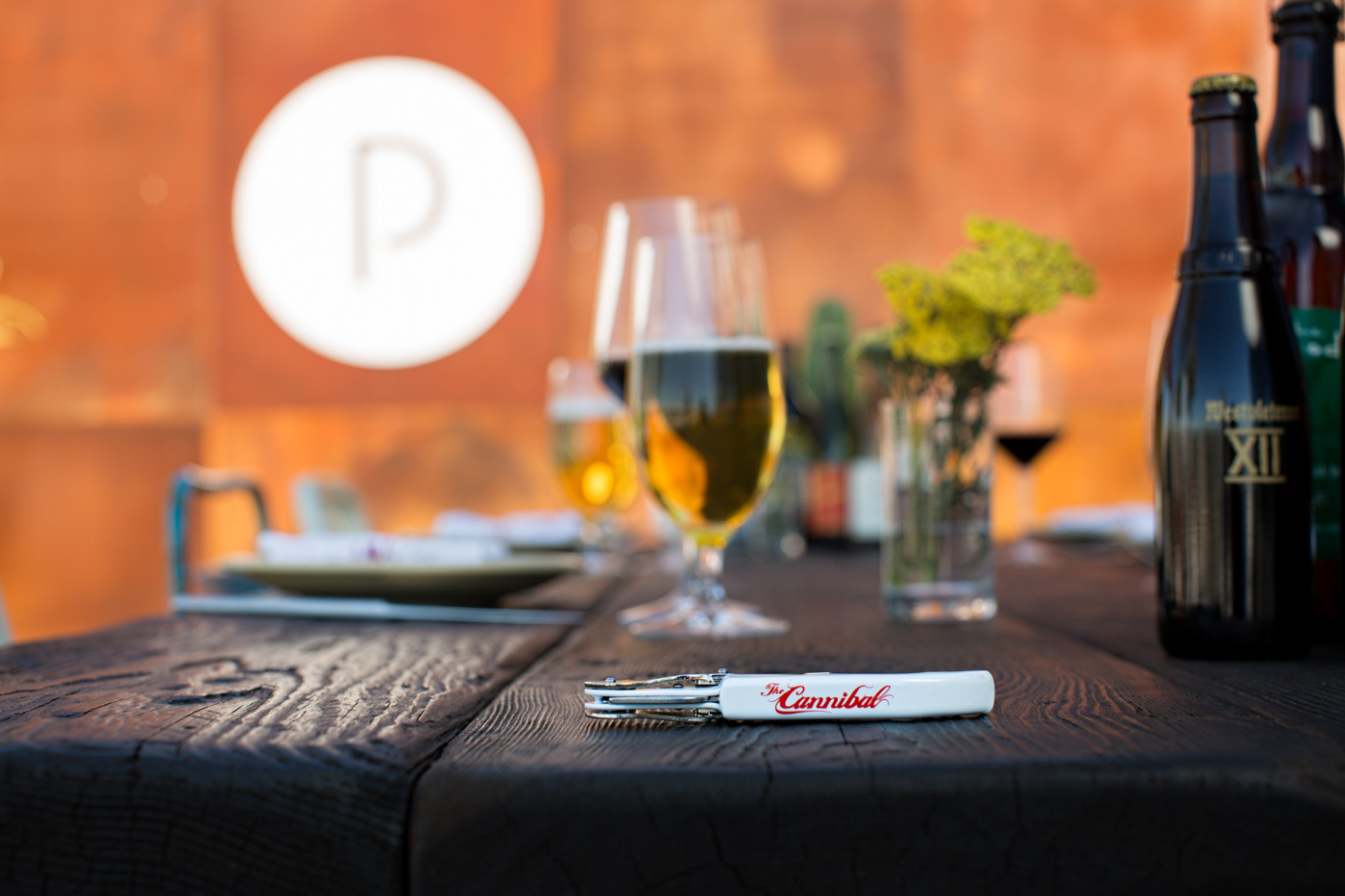
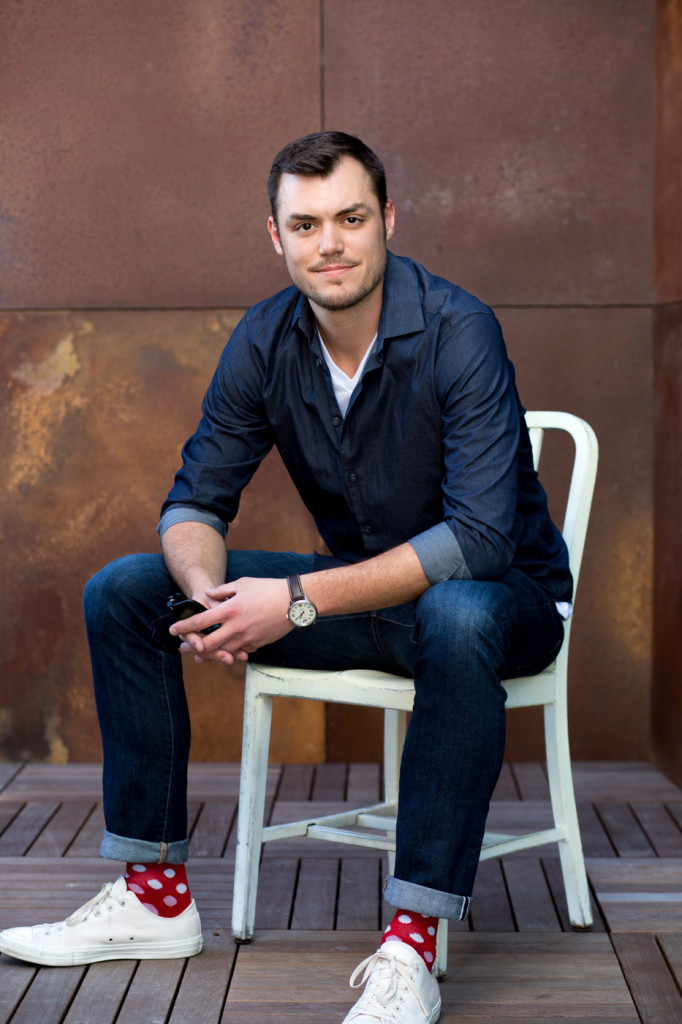
On food, ingredients and kitchen
Chef Francis Derby: There is great produce everywhere in L.A., which has really changed the way we approach vegetables. It’s been an inspiration to see so much grown locally even in the heart of winter. In New York, we’re still doing our best to cook from the markets, but there are challenges when it gets too cold. There are plenty of apples, root vegetables and mushrooms right now, so we can certainly work with that. The L.A. markets, however, offer all of these items as well as winter citrus, greens and a ton of other things.
It can honestly be overwhelming at times––I’ll go to the market for three things and come back with eight. But at the end of the day, that’s what’s so inspiring. I think the crew I work with in New York know by now that if I’m off to the market when it’s flooded with great stuff, there will be a good amount of cooking when I return, as we work some new additions for the evening. With L.A. produce, this can happen almost everyday. To me, the exciting part of this venture is new vegetable and flavor combinations.
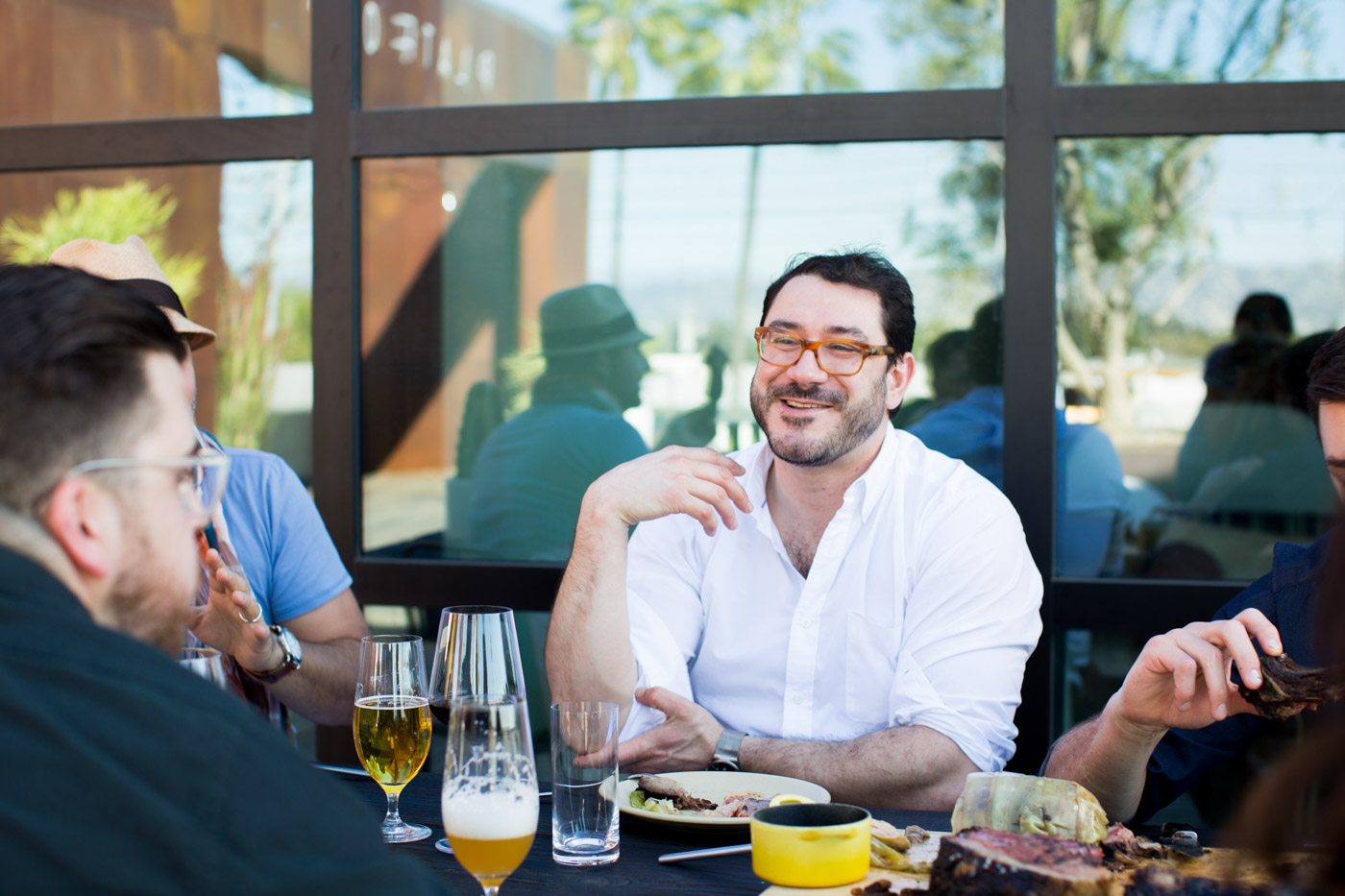
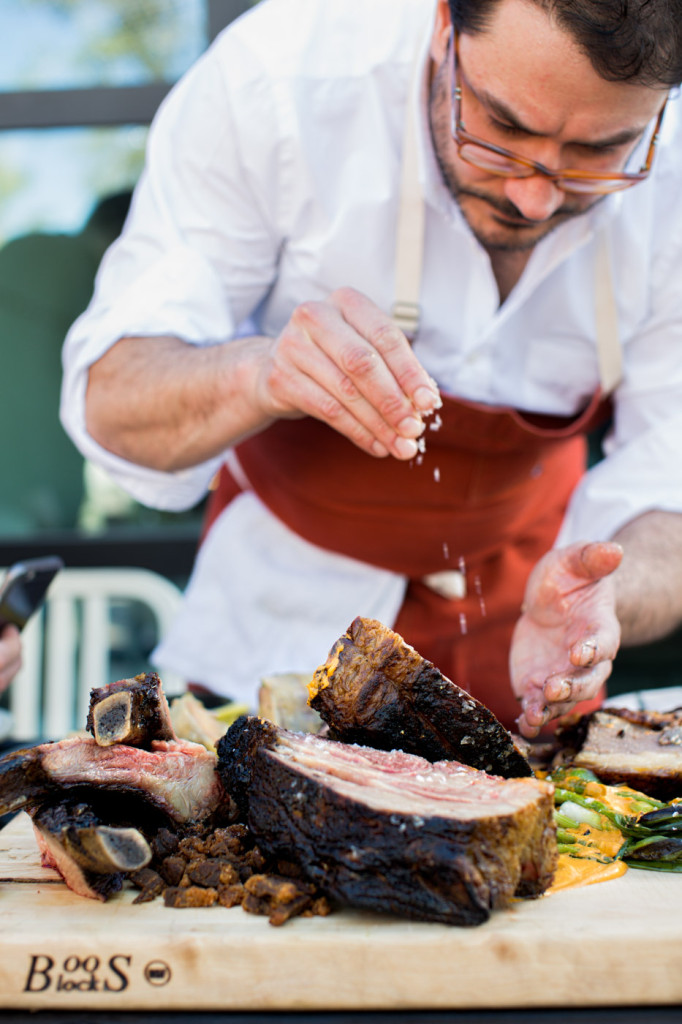
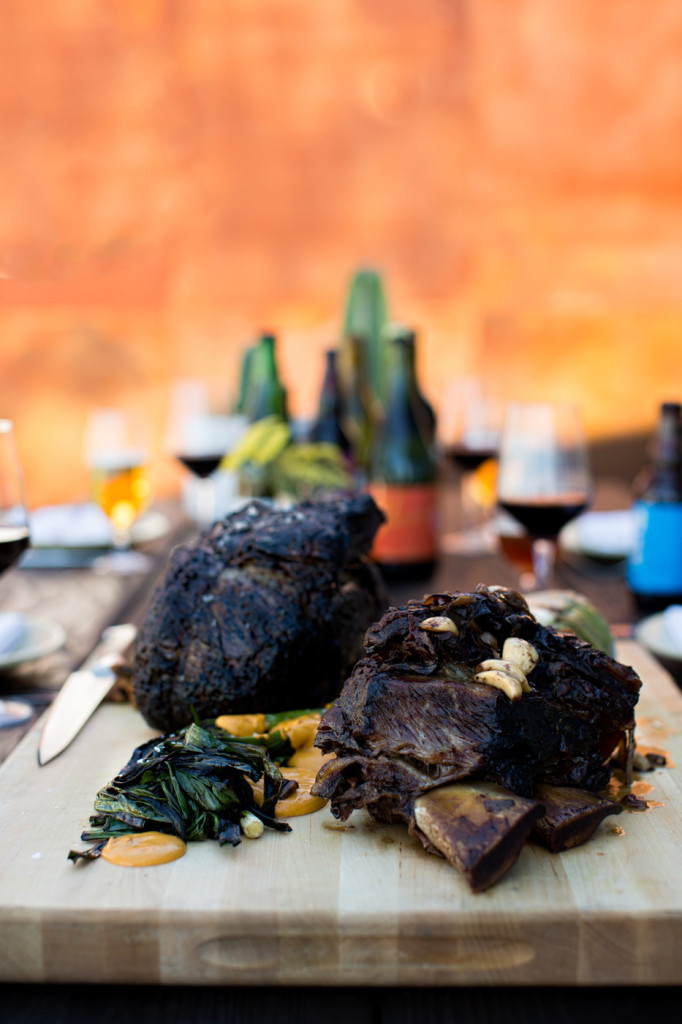
Lane: We also have a full wood-fired open kitchen in L.A., whereas in New York the restaurant was built as a butcher shop first, so the fire power is a bit light. Chef Francis is very excited––there’s nothing better than putting vegetables and meat on a wood fire.
Derby: When I signed on as chef four years ago, the kitchen was the same as it is today––one induction, two toaster ovens, two panini presses. The Cannibal in New York was originally designed for cutting meat with retail in mind, as well as a few sandwiches and some small plates.
But what happens when you put a butcher shop in the hands of a chef? You get a restaurant! We adapted and made interesting choices, like searing quail on the panini press and running hamachi collars through conveyer belt toasters––all kinds of ridiculous moves. The idea was always to push and see how much we could do with the small space and limited gear. Every four months or so, one of our ovens would burst into flames because they’re not designed to handle the volume, so we go buy a new one. But hey, what are you going to do? We’re cooking for 65 seats with a toaster oven. It happens, I guess.
In L.A., we have more firepower than I could ever have asked for. We have a wood burning grill from Grill Works, a plancha, combination ovens, a smoker––all the toys I could ever need to create the food we want to do. When we fire up this kitchen, I have a feeling our menu will evolve in some ways because we have the space and ability to do much more. As of opening, we’ve kept the menu very similar to New York. But when we have the opportunity to work with things like live fire, I’m sure something new will come of it.
Lane: And we don’t have a huge cocktail or wine program in New York due to the space constraint, but in L.A. it will be an equally important part of who we are. The big secret is that we’re all wine lovers at heart––even though we have 500 different selections of beer on the list.
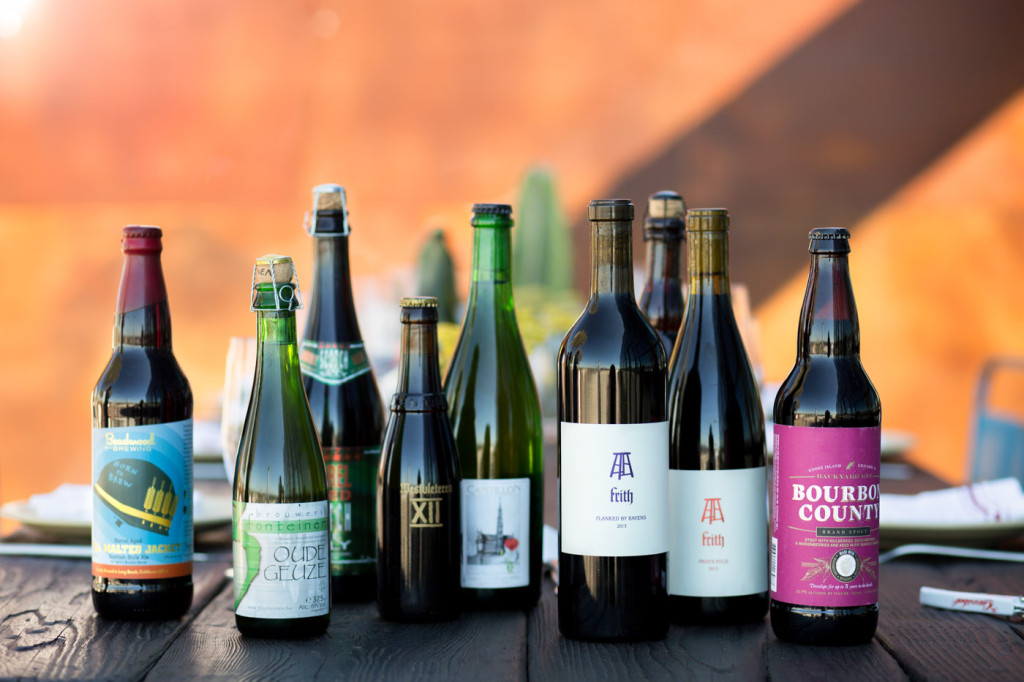
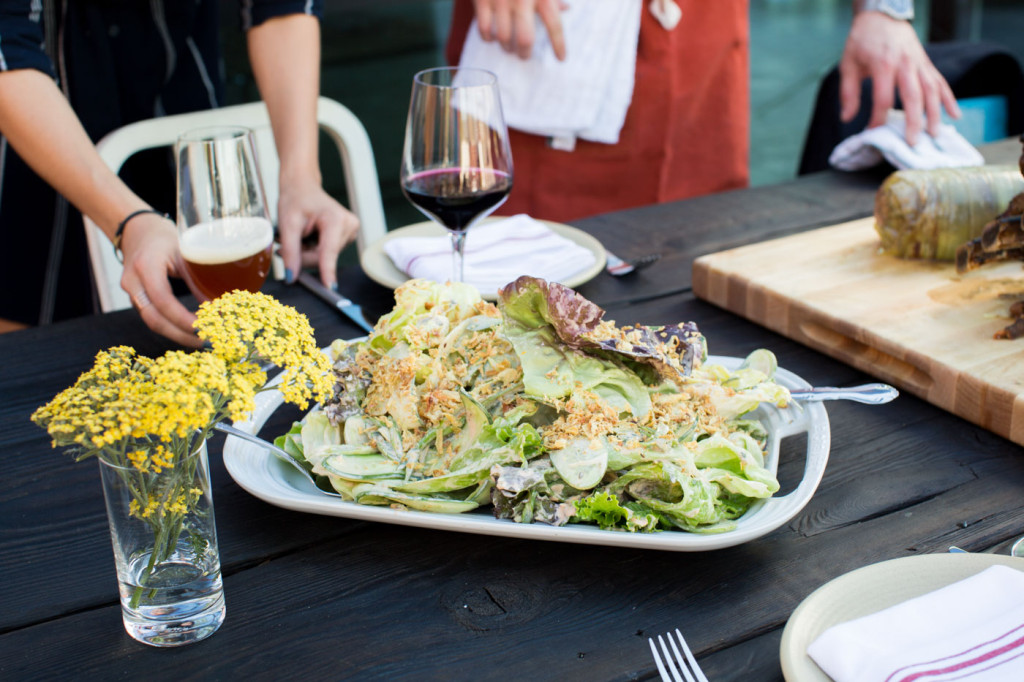
On opening, excitement and opportunity
Derby: Opening a restaurant anywhere is exciting. It has that “new car smell,”––and in a restaurant, that’s the smell of new paint, freshly cut wood and grilled food. Every place I’ve been involved in opening has carpenters and electricians working right up until the first customer arrives. It’s a very exciting time for everyone involved. The cooks get to cook, the plumbers who installed the line get to see the stoves fired up, the front of house staff have fresh new aprons.
I find it hard to speak of all the challenges because as of right now, we’re still in that honeymoon phase. It’s that time when you’re building your crew and taking the time to work through every detail of each system in the hopes of predicting how things will go when you open the doors. You work and rework every dish until you are almost satisfied with it (no dish is ever really complete, they all will need to be adjusted over time).
I think the challenges will come when we put all these things into play and see how it works and how it’s perceived. We can love a dish, work it and plate it 87 times, but if no one else loves it or it doesn’t sell, it’s time to rethink it.
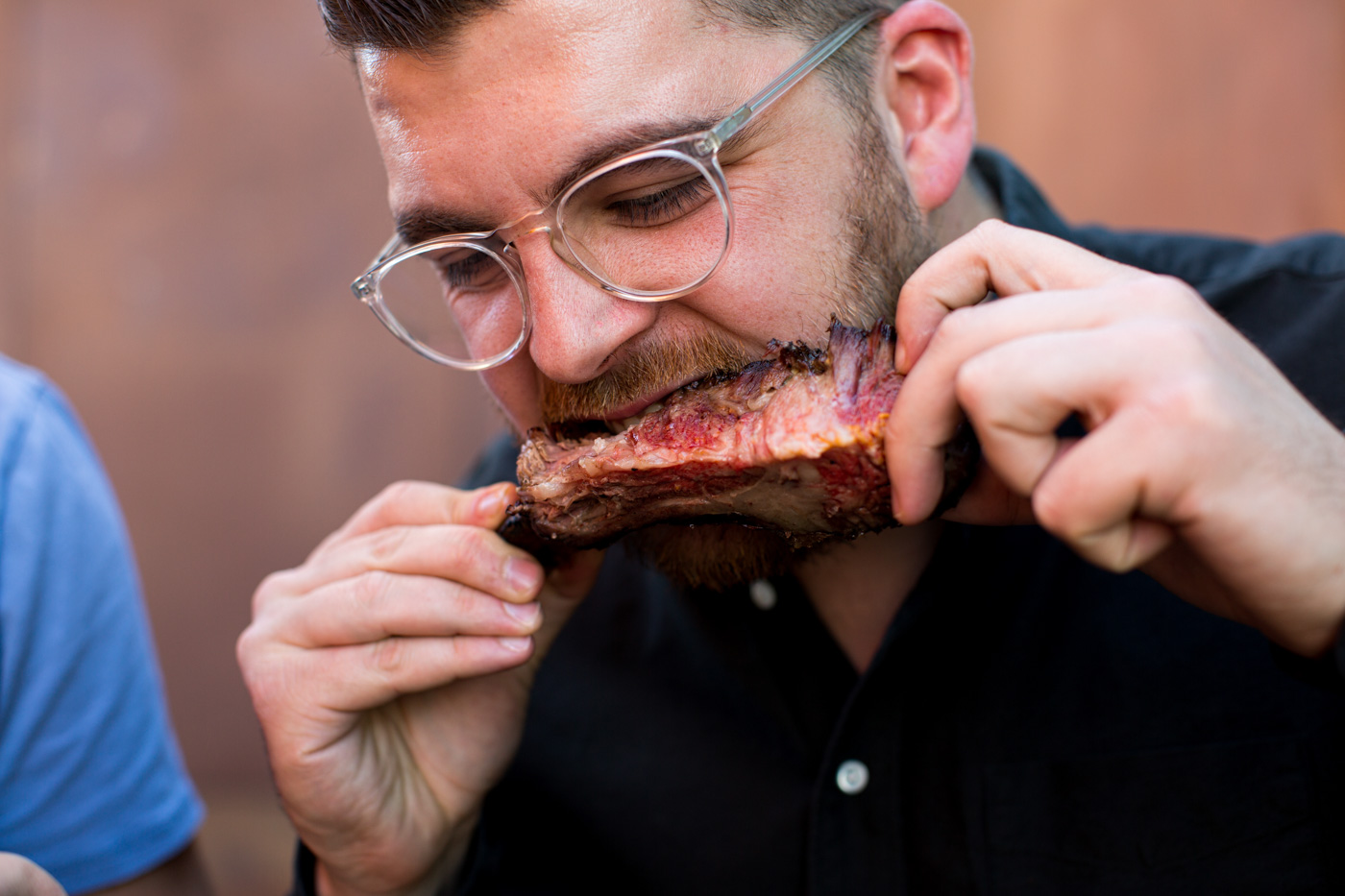
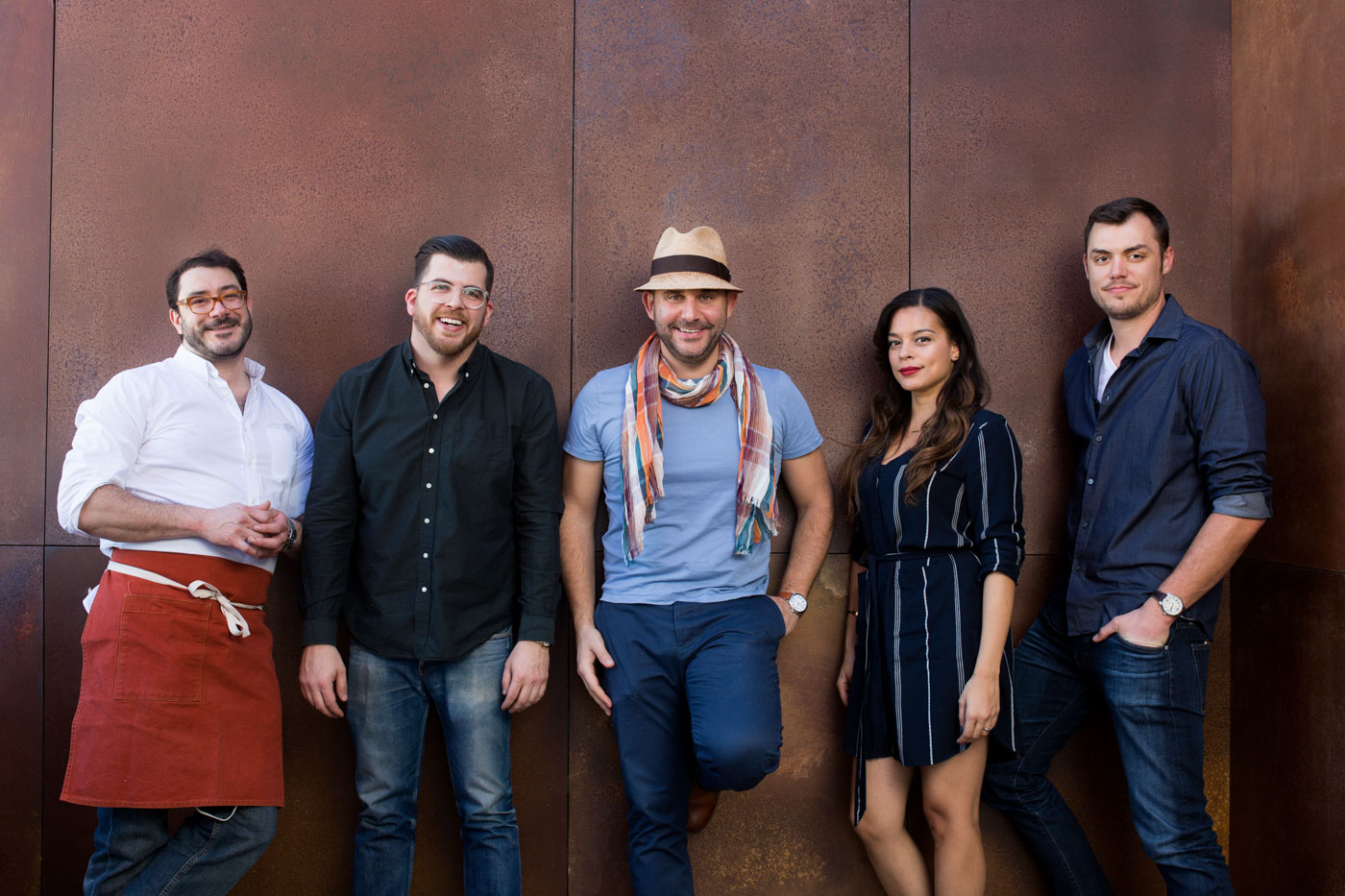
Turtzo: We couldn’t be more excited to open The Cannibal in L.A. We love the community of restaurateurs, chefs and culinary industry folks; they have been wonderfully welcoming. We can’t wait to open and draw people from Culver City and across L.A. to see what we are about.
Derby: Opening in L.A. means a new audience; we’ve been at this for some time in New York, and now we’re taking it on the road. We’ve assembled a great crew and had some time to think about how we’ll present what it is that we do to a new city. We’ve met great people who are excited for our opening, and we’re all looking forward to taking this new restaurant for a ride––and to seeing where she takes us.
Turtzo: The only thing left to do now is delete the weather app on our phones and add Waze.





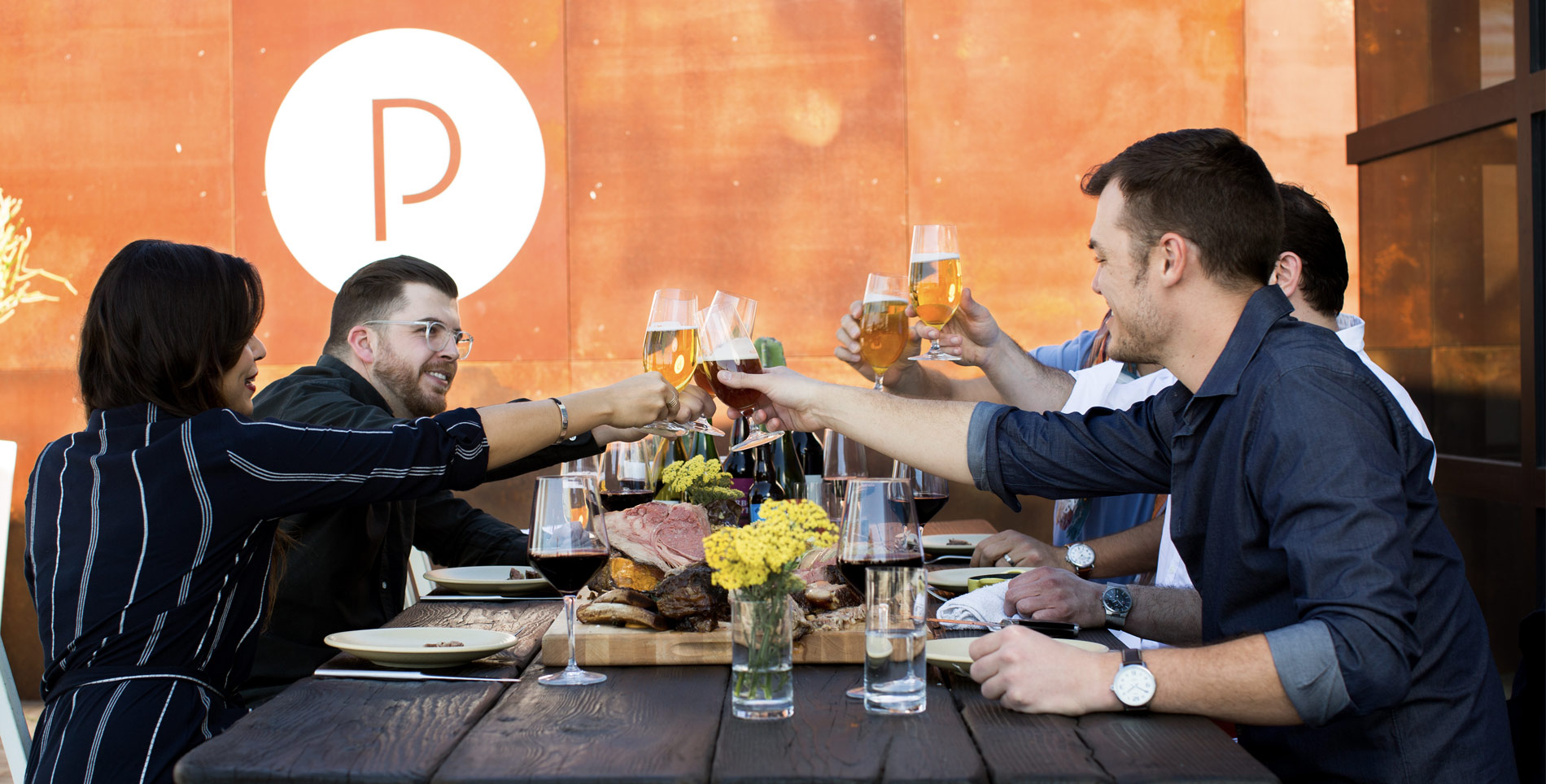

Our comments section is for members only.
Join today to gain exclusive access.